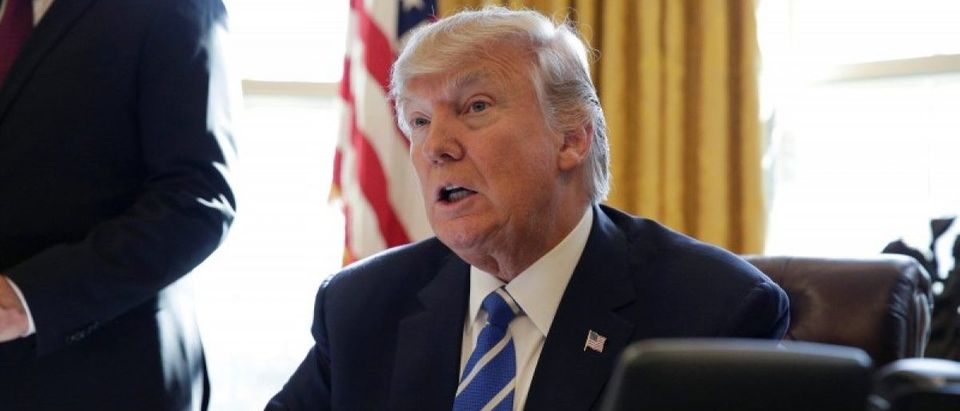The 9th U.S. Circuit Court of Appeals declined to overturn a district court order temporarily barring enforcement of key provisions of the president’s executive order on refugees late Thursday, leaving government lawyers with a range of difficult options and no obvious path forward.
The ruling ensures that several sections of the order will remain suspended while the courts evaluate the directive on its merits, a decision which leaves several options for the Trump administration.
First, the government could apply for an emergency stay at the Supreme Court. A stay requires five votes, which may be too tall an order given the current composition of the Court. If the justices split 4-4 along ideological lines, the 9th Circuit’s ruling will be upheld, though it’s also possible that Chief Justice John Roberts and Justice Anthony Kennedy would side with liberals and deny the stay in a 6-2 vote.
Applying for a stay could also be a strategically unsound move for the administration. The government lost on practically every question before the 9th Circuit; to have the ruling affirmed (or at least untouched) by the Supreme Court would be a significant setback for the administration now and in future litigation.
As attorney Ken White noted on Twitter, sometimes the task of government lawyers is to limit the damage of an adverse ruling, as opposed to continuing the fight against it.
Second, the government could ask for an en banc rehearing, in which the chief judge of the 9th Circuit and ten other judges would evaluate Thursday night’s decision. However, the odds of the government prevailing en banc are even lower than they were before the three-judge panel, for a variety of reasons.
Third, the government could ask the Supreme Court to take up the case through a procedure called “certiorari before judgement,” which allows the Supreme Court to immediately review the finding of a district court. Per the high court’s rules, the justices will agree to quick review of a district court decision “only upon a showing that the case is of such imperative public importance as to justify deviation from normal appellate practice and to require immediate determination in this Court.” This litigation almost certainly satisfies that requirement, given the controversy the order has generated, and because the case implicates the scope of the president’s power over immigration.
Granting cert only requires four votes. Therefore, this may be a more advisable course.
Finally, the government may elect to continue proceedings within the 9th Circuit, as is the current schedule. However, it is difficult to imagine the government would wish to dedicate time and resources to hearing they will almost certainly lose.
It’s difficult to anticipate how the U.S. Department of Justice will choose to proceed, though a decision is sure to come quickly.
Send tips to kevin@dailycallernewsfoundation.org.
All content created by the Daily Caller News Foundation, an independent and nonpartisan newswire service, is available without charge to any legitimate news publisher that can provide a large audience. All republished articles must include our logo, our reporter’s byline and their DCNF affiliation. For any questions about our guidelines or partnering with us, please contact licensing@dailycallernewsfoundation.org.


